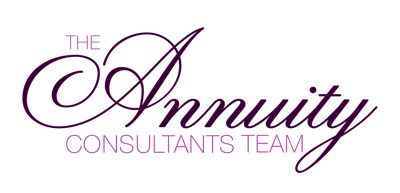In many ways, Millennials are the perfect storm of opportunity for agents and advisors. The largest generation in American history currently represents more than one-third of the workforce. In addition, they are set to inherit the largest transfer of wealth ever. That is an estimated $30 trillion over the next 30 years. With the majority of Boomers at or near retirement age, Gen-Xers turning that corner. Advisors would be wise to start paying more attention to Millennials.
When it comes to life insurance products, the Millennial market is wide open territory. The 2016 Life Insurance Barometer Study (Life Happens/LIRMA) found that only half of the Millennial population carries life insurance. Interestingly enough, half of Millennials surveyed recognized that fact. If the primary wage earner died, the financial impact would be felt immediately. Millennials are thinking about the big picture are twice as willing to discuss long-term savings goals than Boomers. However, advisors who try to reach this demographic with traditional strategies are less likely to have those conversations.
Tapping into the Millennial market requires an understanding of their values, perspectives, needs and, more importantly, challenges. (Data source: Pew Research Center, unless otherwise noted)
Education & Employment
- Roughly 40% of Millennials (aged 25-39) have earned a bachelor’s degree or higher, making Millennials the most highly educated generation in history.
- Unemployment rates among Millennial college graduates are significantly lower than those with only a high school diploma (3.8% vs. 12.2%).
- Millennials are more likely than Gen-Xers to stay with the same employer for 13 months or more (63.4% vs. 59.9%).
- The median household income for Millennials is $72,500 (second only to Gen-X households).
While Millennials struggle with student debt and reduced earning power now, things will likely improve over time. With the increasing value of a college education, young graduates often see their student loans as an investment in their future. This suggests a willingness on their part to play the long game, if they can be confident it will pay off in the end. Consider applying this logic to your strategy. Start with what they can afford now and outline how that can be used as a stepping stone to bigger and better things down the road.
Values, Priorities & Perspectives
- 45% of Millennials feel that most businesses do not behave in an ethical manner (Deloitte).
- Half of Millennials say they do not want a primary financial advisor, and only 1 in 3 have one (Life Happens/LIRMA).
- Overall, Millennials are most likely to need information and education about life insurance (Life Happens/LIRMA)
- More than 80% rank family as their top priority (52% said “being a good parent” and 30% listed “successful marriage” as most important) versus 15% who said “having a high-paying career”).
- 31% say they currently earn enough money, while 88% feel confident they will in the future.
Millennials are skeptical when it comes to business and finance-related matters. This likely stems from a lack of understanding about the products, services and the role an advisor can play in their lives. Their optimism and desire to maintain a successful household present an opportunity for advisors to ease that skepticism. A transparent, ethical, and mentoring approach will go a long way toward establishing credibility. Make a personal connection to show that you care as much about their family’s well-being as they do. Work with them, rather than sell to them.
Making the Connection
- 75% say new technology makes life easier.

- More than 50% will research life insurance online, but purchase their policy from a professional (Life Happens/LIRMA).
- 54% will turn to social media for recommendations on a financial professional (Life Happens/LIRMA).
- 67% say it’s important to meet with a financial advisor in-person (Center for Generational Kinetics).
While Millennials are fully immersed in the digital world, they also value human connections and interpersonal relationships. Advisors should expect Millennial clients to come in armed with whatever knowledge they were able to gain from web articles, eBooks, and other digital content. However, they’ll need you to fill in the blanks for them. Also keep in mind that members of this tech-savvy generation might respond well to incentive-based wellness programs, like those that provide wearable gadgets to policyholders.
Want to learn more about how we can help you prospect to Millennials? Complete the form below and we will get in touch with you right away.

